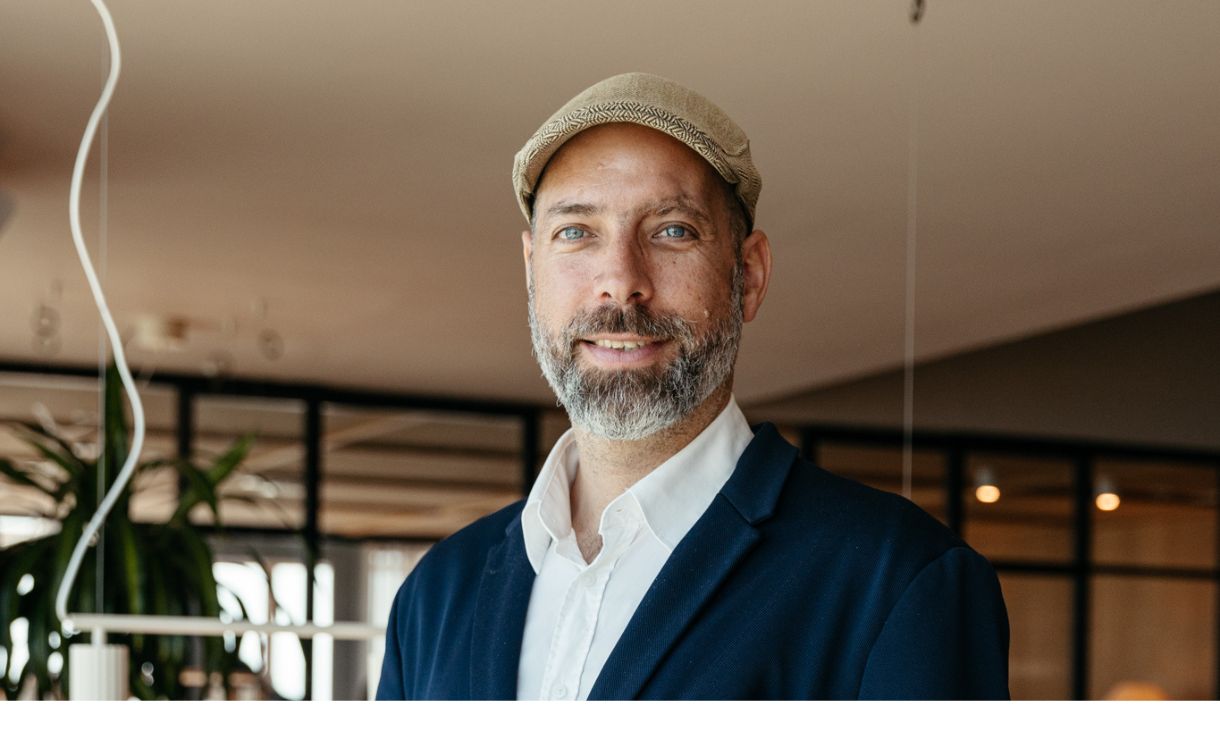Meet Péter Dalos – Nominated by the Centre for Budapest Transport (BKK)

Budapest: a glistening jewel of art nouveau architecture nestled along the mighty Danube river, it is the ninth most populous city in the European Union.
– Péter Dalos
An evolution of sustainable transport and innovation
Hungary’s vibrant capital of Budapest is one of the fastest-growing cities in Europe, putting pressure in recent years on urban planners to make transport infrastructure more modern and sustainable.
Péter Dalos has contributed to the progress Budapest has made in urban mobility. Describing himself as a "recovering traffic engineer," Péter has witnessed the evolution of sustainable transport and innovative mobility solutions in the city.
Since joining the Centre for Budapest Transport (BKK) in 2014, he has been instrumental in advancing Budapest’s mobility landscape into a model for other cities to follow. Initially working as a consultant planner, his involvement with BKK began in 2007. He worked at a consultancy firm and carried out feasibility studies and concept plans, eventually leading to the launch of the MOL BuBi bike-sharing service in 2014.
“Since 2014 a whole shared mobility market has evolved in Budapest, not only with public bike sharing but also e-scooter sharing, moped sharing and car sharing. The result is more than eight hundred micro-mobility points within the city, which is like a jungle: we started to plant the seeds ten years agow ith the first 76 stations of our public bike sharing and now we see that it’s flourishing," he said.
Wheels in motion
Currently, Péter serves as an advisor in BKK’s Mobility Development Directorate, focusing on various aspects of new mobility, including shared mobility, road safety and active and micro-mobility programs.
"The MOL Bubi bike-sharing scheme was like throwing a stone into still water," he said about the rapid growth of the shared mobility market and about the strong impact as to how urban mobility is perceived generally in Budapest.
Péter and his colleagues established a design standard for “mobility hubs” in the city and have been working to fine tune the regulations and the common cooperative communication between stakeholders, like public and private service providers, city district municipalities and the city council of Budapest (the latter two being the owners of the public realm).
Leadership in communication
Péter believes his participation in the EIT Urban Mobility Emerging Leaders program will allow him to unlock another step forward in his professional development. He sees it as an opportunity to enhance his leadership skills and improve his communication skills.
“Originally I’m an engineer, and many times we engineers have the feedback that we are speaking too much in technical language and it’s often not easy to clearly express ourselves with the communication department, for example," he said.
Péter acknowledges that having his level of technical expertise can make it difficult to come across with positivity and enthusiasm when dealing with non-expert stakeholders.
“A significant part of my job is to stay on the critical side and raise red flags if I think something won’t work from my experience. What I hope is that I gain some more knowledge about how to maintain motivation and how to be more skilful in this fast-growing and fast-moving world we are in at the moment.”
Péter hopes to leverage the leadership skills gained from the program to improve team building and stakeholder communication, including learning about concrete models for communication with decision-makers and other stakeholders representing different sectors with diverse types of experiences in mobility.
Budapest’s approach to urban mobility is a success story that can be used as a benchmark for other cities according to Péter. Before the MOL Bubi bike sharing service was launched in 2014, ‘shared mobility’ was a totally unknown concept in Central and Eastern Europe, but now bike sharing and related shared mobility services are widely recognised and used, which shows the positive effect that user-focused communication and innovative mobility services have had on the city.
"The backbone of the city is mass public transport... and then the arms and legs are active and micro-mobility and shared mobility services," he explained.
This holistic approach ensures that shared mobility complements the public transport service offers by providing more mobility choices, a strategy that Péter believes other cities can learn from.

EIT Urban Mobility Emerging Leaders
Launched in 2024, the EIT Urban Mobility Emerging Leaders program is transforming the leadership landscape. Submit an Expression of Interest for your organisation to join EIT Urban Mobility Emerging Leaders 2024. For any queries, please get in touch emerging.leaders@rmit.edu.au.